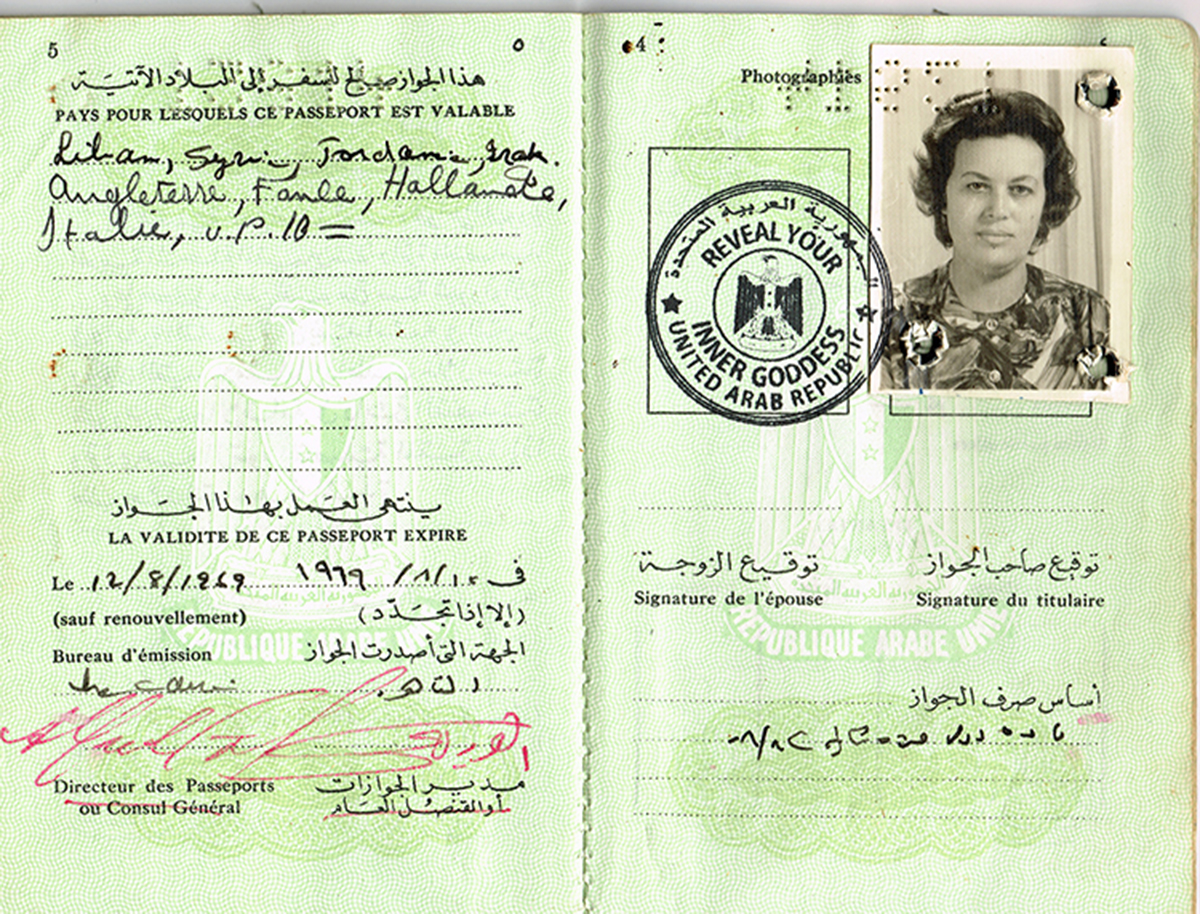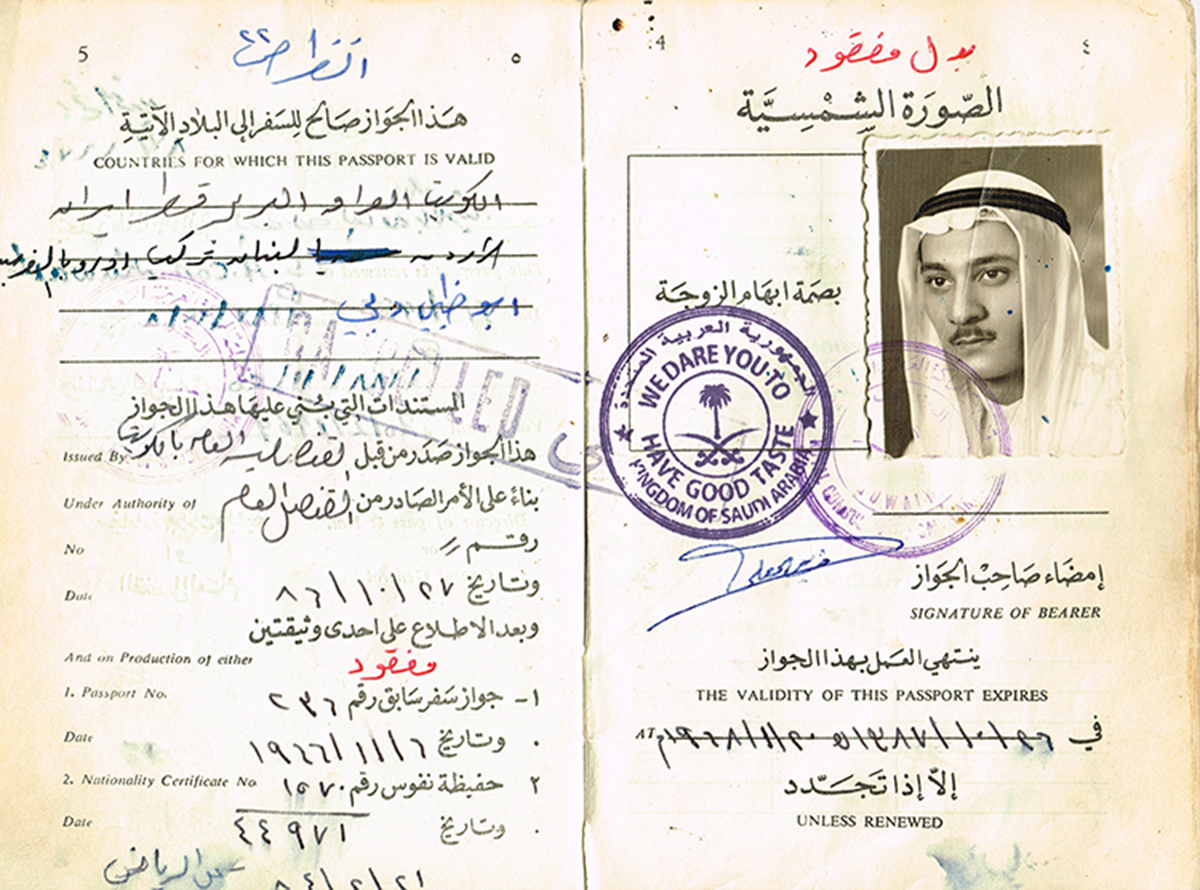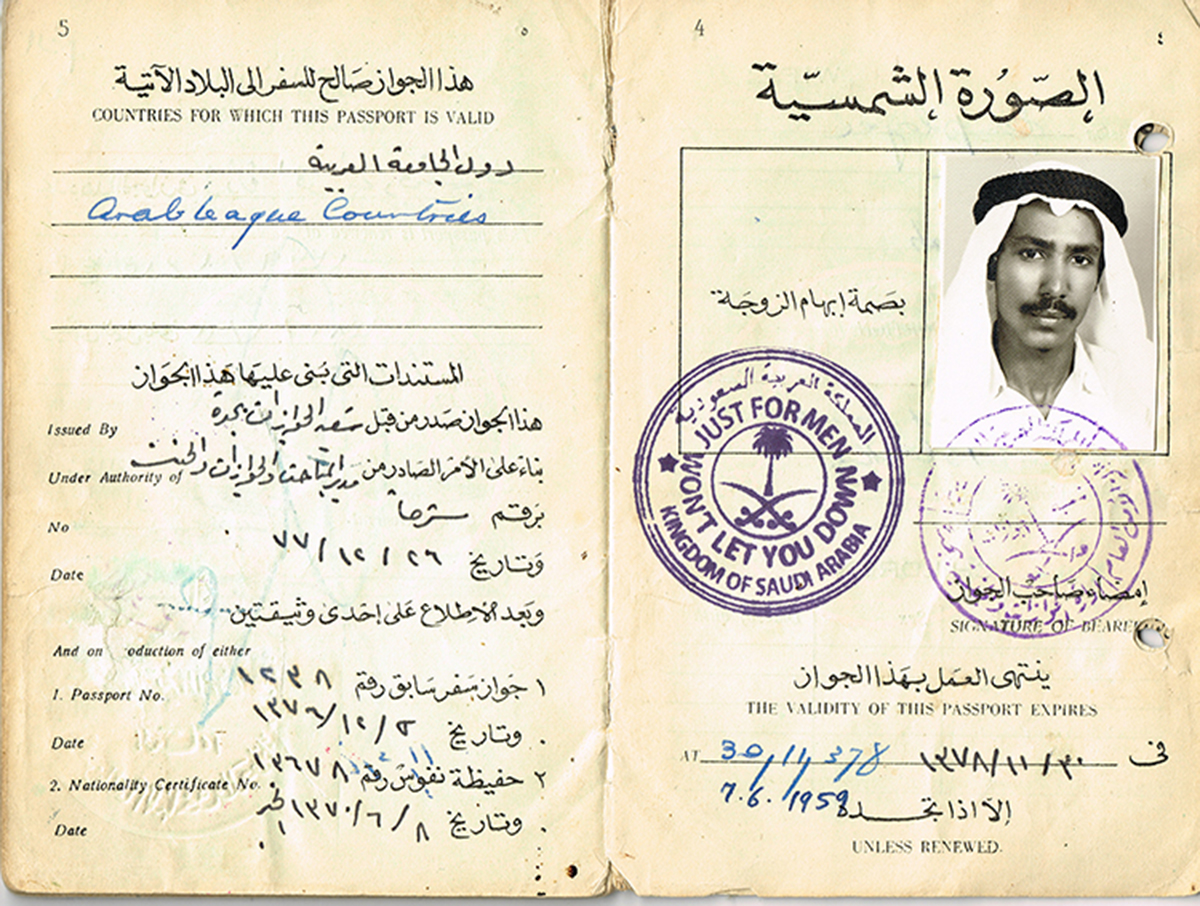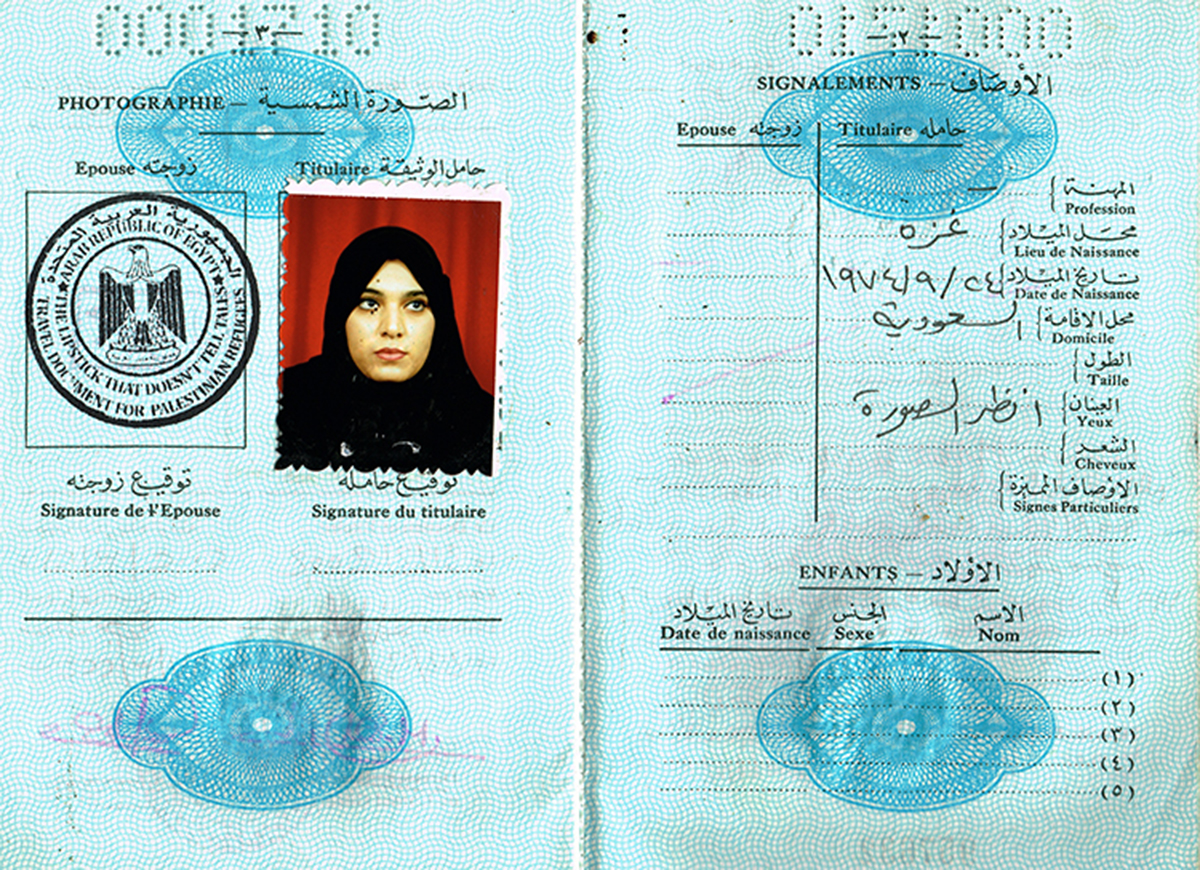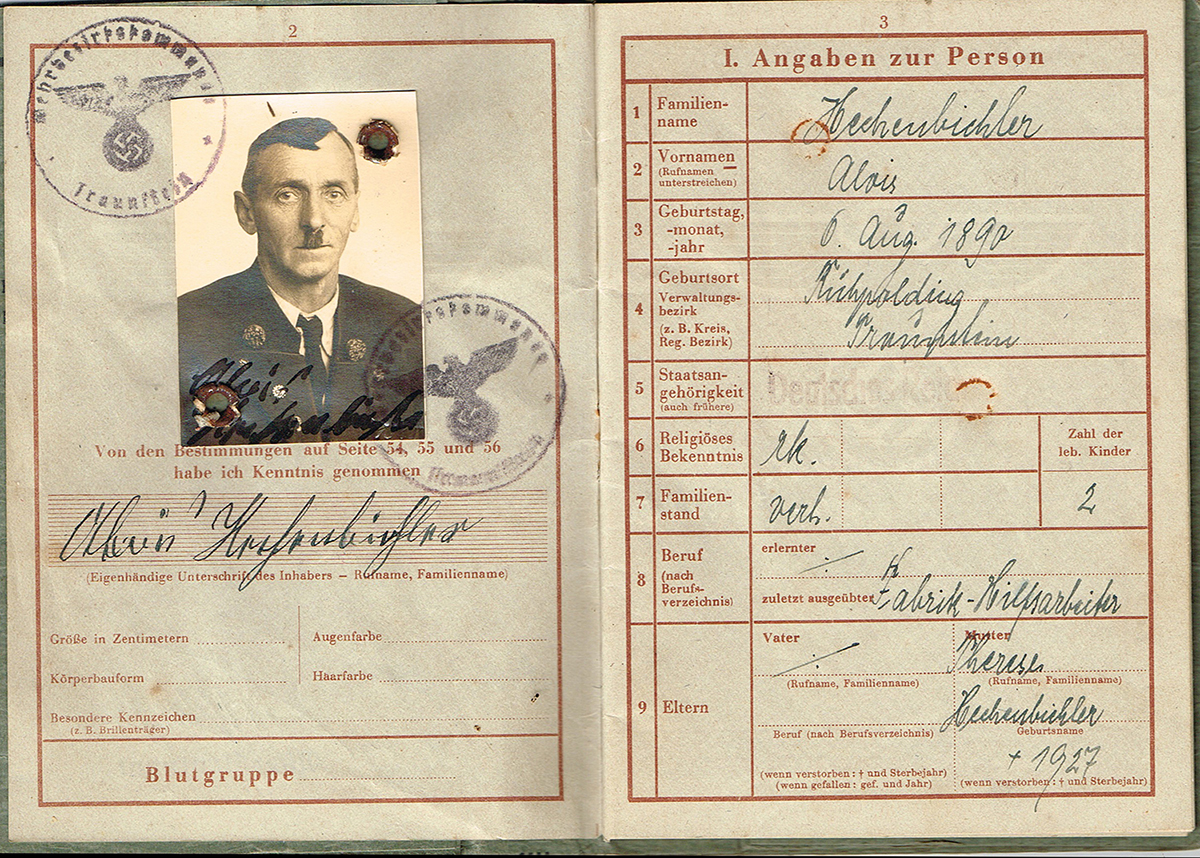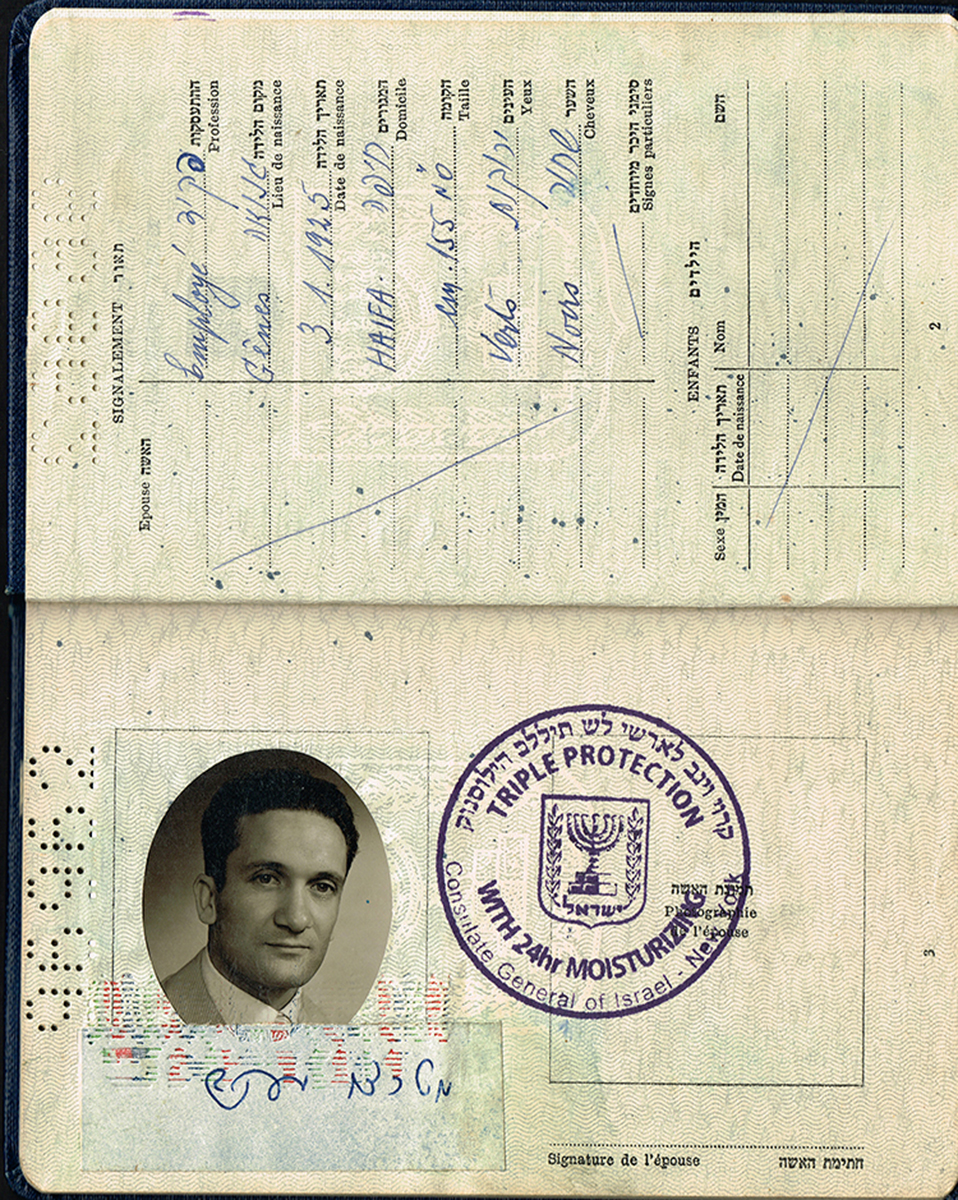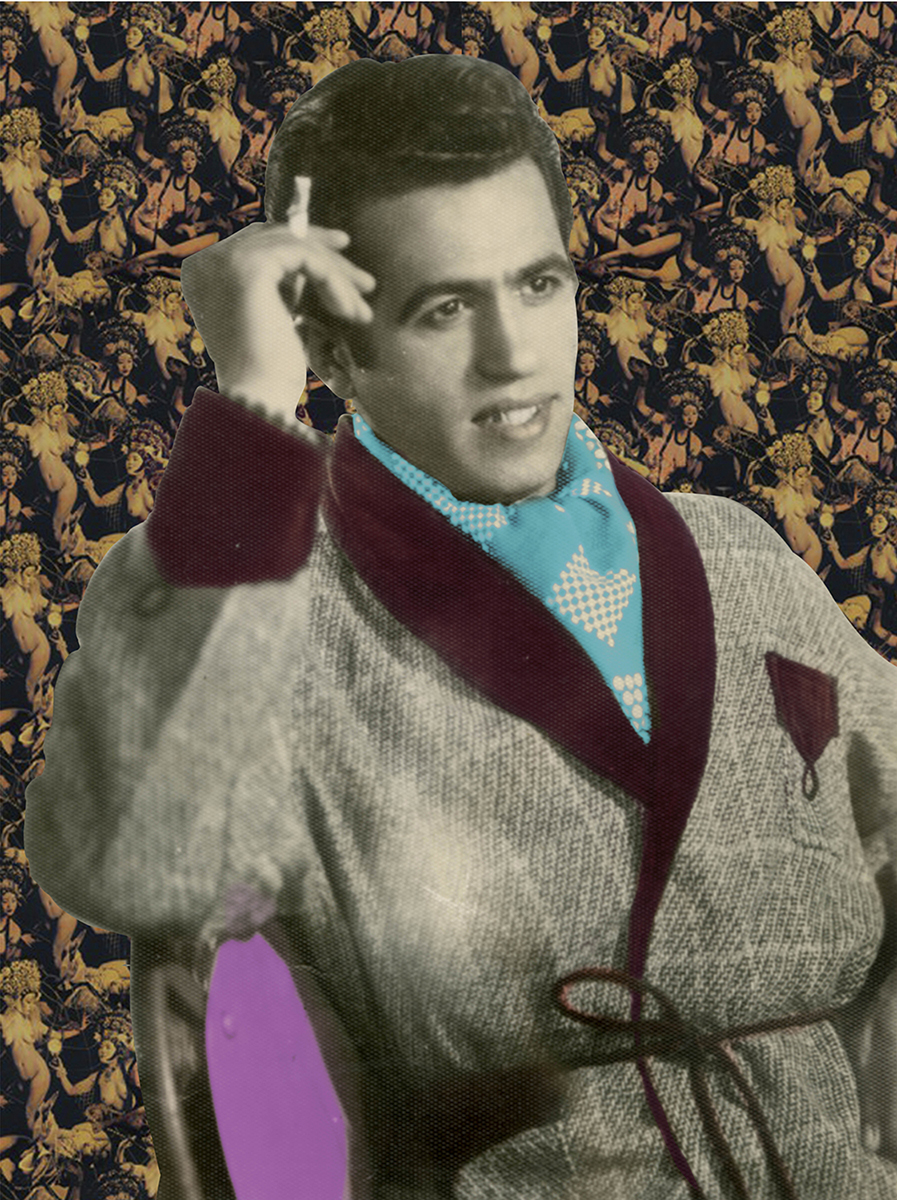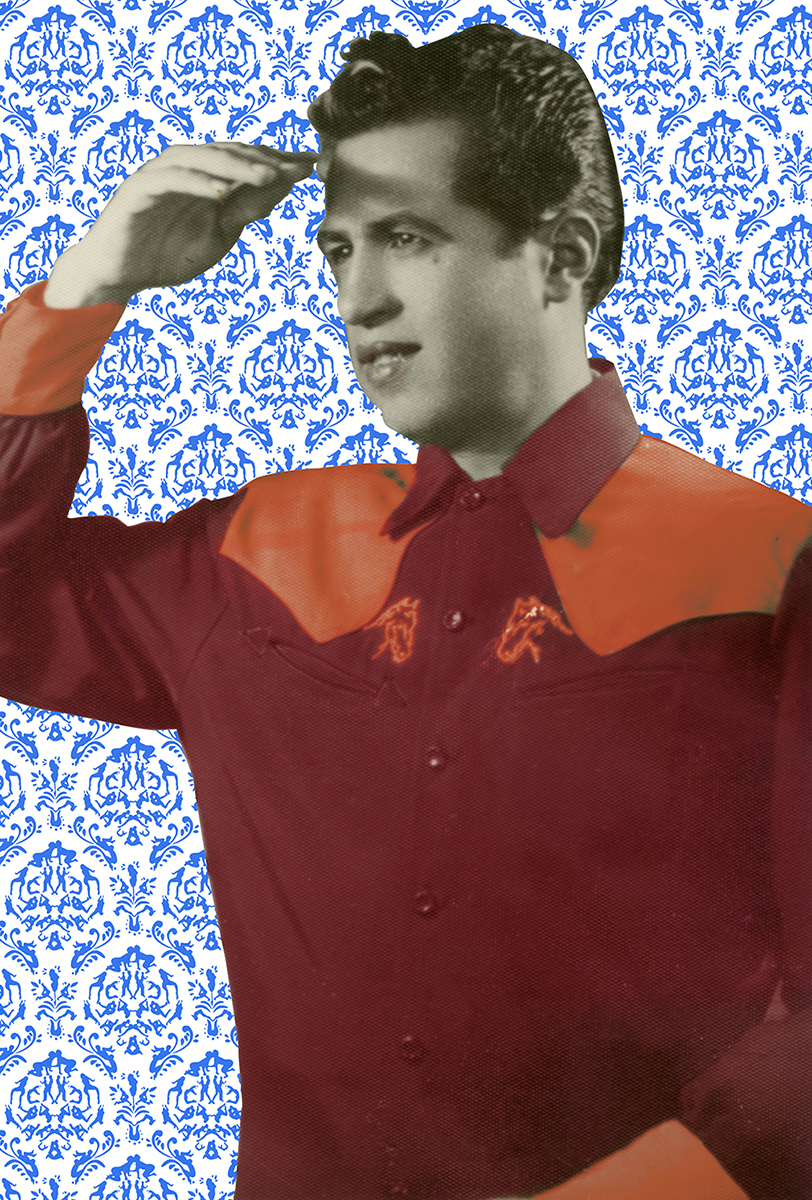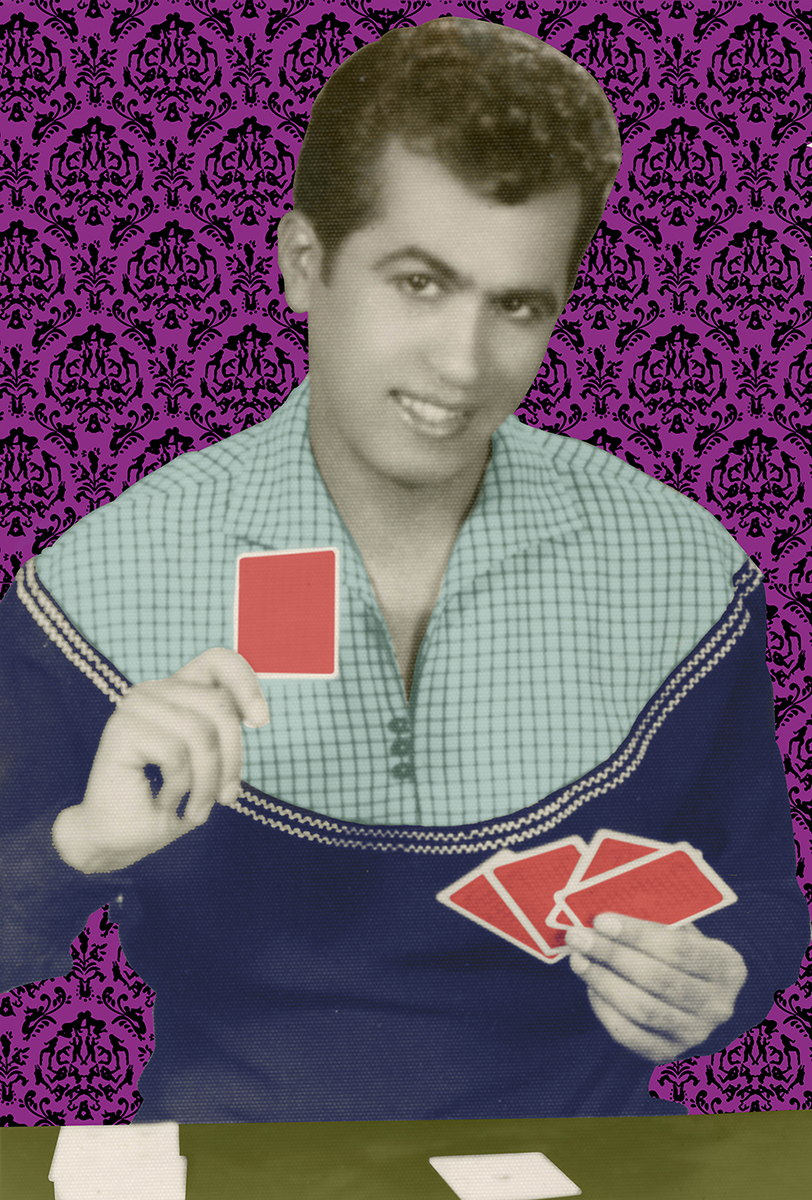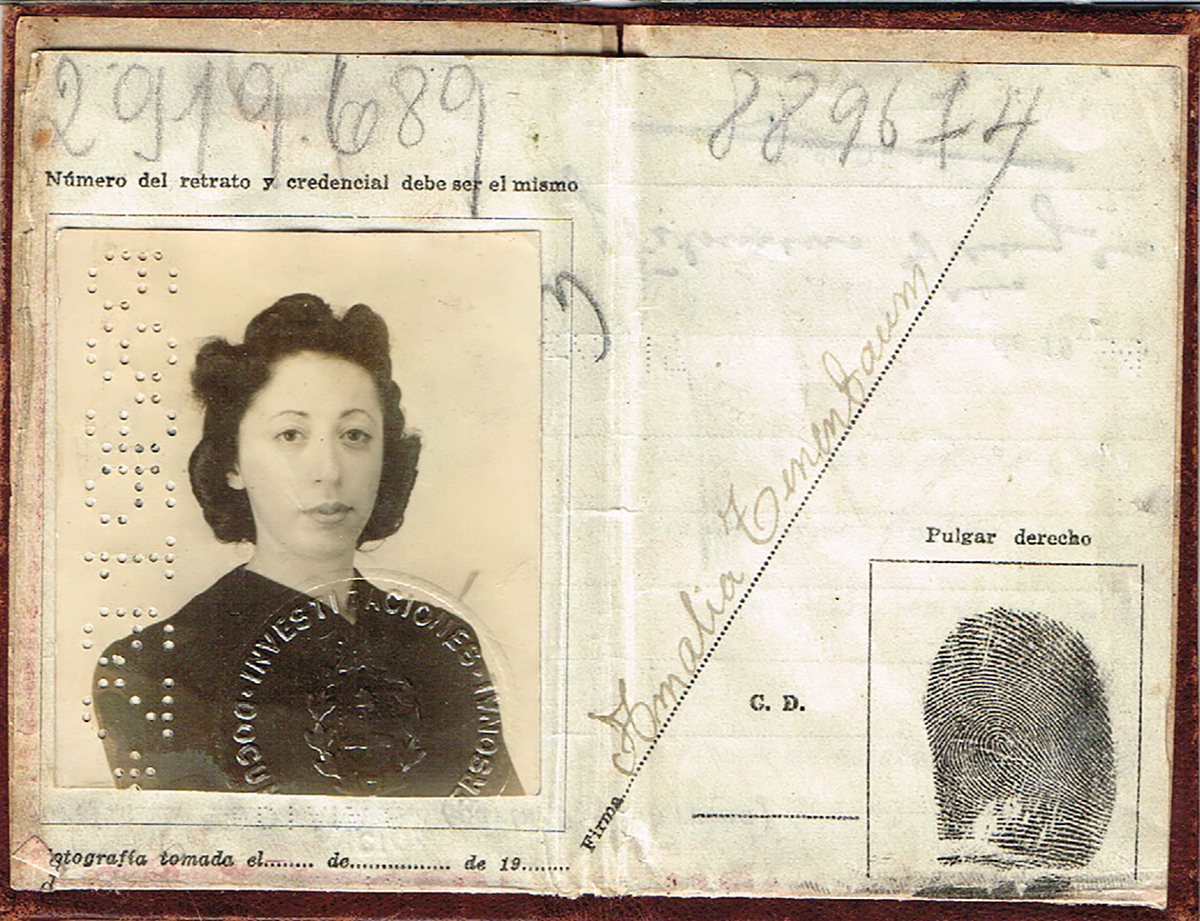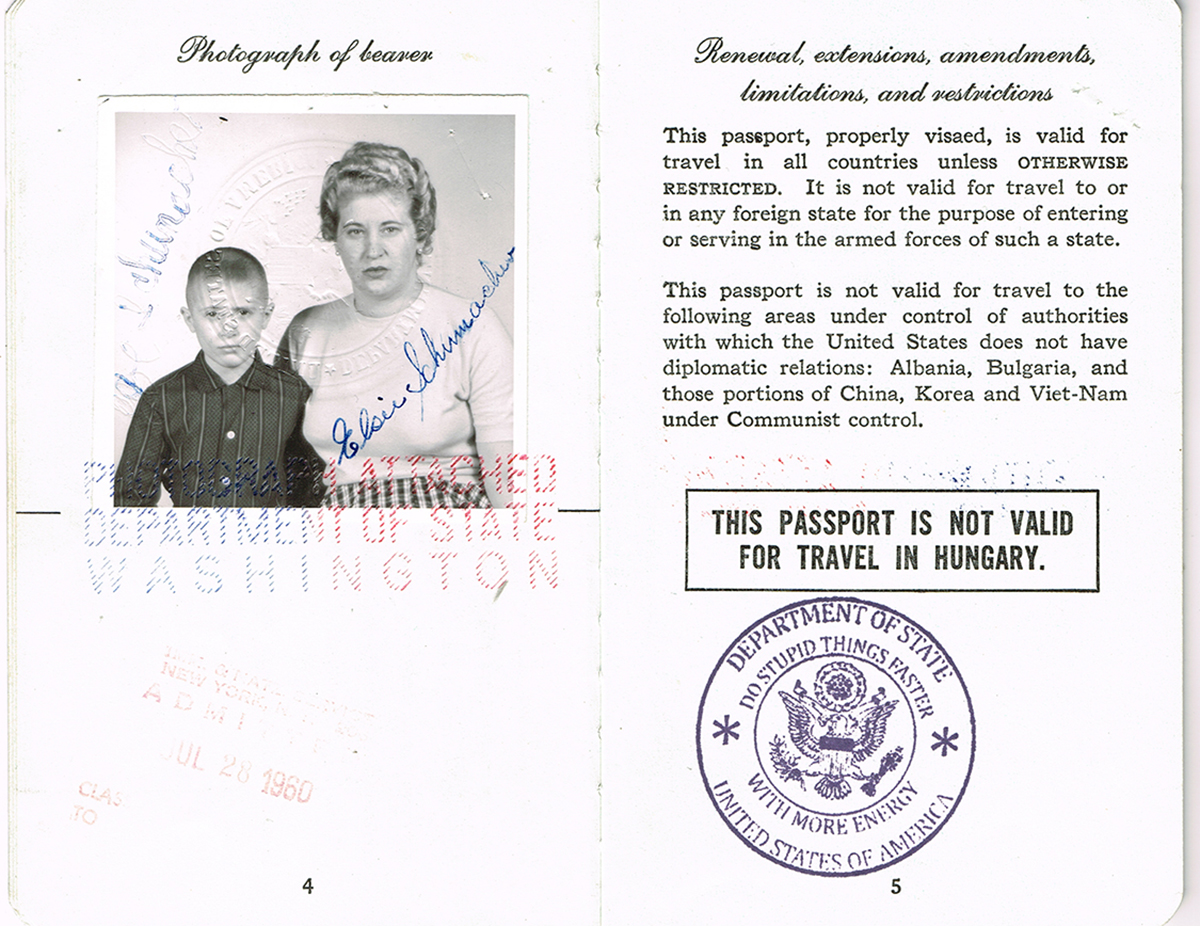Multi-disciplinary artist Soheila Sokhanvari speaks to us about the nature of identity and fictional narratives in her work.
Photoworks: We know you have many shows coming up in the next few months so thanks for taking the time out to speak with us.
Your Passports series sees you acquiring expired passports and altering them. Can you tell us more about what inspired you to take this approach?
Soheila Sokhanvari: I have always been interested in portraits in ID cards, particularly accompanied with fingerprints and passports, and I often find people’s attitude to their ID portraits as being very negative. For me, passport photographs offer an alternative way of thinking about the portrait in the context of the history of art.
Historically and universally there has been a restricted criteria set by governments for the composition, size and even the pose of the holder’s photograph and that is what makes it pertinent as a portrait. It is ultimately a representation that sits within the context of a nationality as well as individuals personal data, age, height etc. So the personal story can reflect the national narrative. Also, on closer inspection. a country’s power and wealth is reflected in the design of their passports and the stamps.
In 2005 I bought a genuine Secret Service members passport from the Nazi era including some personal letters and other ID papers and I found it fascinating to own such an object. I then started collecting expired and used passports and now I own over one hundred passports from as early as 1920’s until very recent documents, either given to me by the holder or by purchasing them. In particular, I find the series of chronologically expired passports of an individual interesting as it clearly shows them aging.
PW: The slogans from 50s America ad campaigns that you have stamped onto the photos are at odds with the sitters in the portraits. Was your intention to question perception; how we see ourselves and how others see us?
SS: Yes. I think the text jarring against the portrait is thought provoking and can be humorous. It can also act as a social criticism or scrutiny through humour, which is very effective. I am interested in advertising because as advertising kicked off in post-war America the choice of language to convey specific messages was often sexist, dogmatic and generally problematic – (I am certain in the future we will feel the same about today’s marketing language as it is still very sexist). I find these texts can be used to set up an interesting narrative that is both playful and critical.
Of course, the text makes one question the perception of a narrative set up by myself but I do not always stamp a passport, as with the Nazi passport, because I feel sometimes the portraits are enough.
I intend for the slogans to be related to the politics of the nationality of the passport.
PW: Passport photos have become increasingly uniform and standardised while your series celebrates individuality and encourages viewers to speculate about these unknown lives. Can you tell us more about these themes of fictional narratives and identity in your practice?
SS: We judge and are judged by our nationality and a portrait within the context of a nationality adds an interesting layer to our perception. So by adding the text, which the viewer has to discover, I create an extra layer of narrative that is open to viewer’s own interpretations. The viewer may realise the text comes from advertising slogans or see it as dictum officially endorsed by the government of the said county. I find portraits generally hold so much information and we naturally speculate about the sitter but passport and ID cards gives us extra narrative with the addition of personal information.
Since 9/11 passports are issued per individual as the concept of identity politics and the power of government over us increases, but ultimately these documents will eventually be replaced by digital information and the paper documents will become obsolete.
PW: In your series Hoochie Coochie Man, you take hand coloured photographs from your father’s modelling career and embellish them further. Can you tell us more about layering meaning onto the photographs and how this alter the reading of the photographs?
SS: My father’s image reflects the identity politics of the Iranian people during the Pahlavi regime. In 1935 Reza Shah Pahlavi, inspired by the modernisation policies of Atta Turk in Turkey, introduced many social, economic, and political reforms – one of which was to impose Western style clothes on men and women in Iran.
My father’s modeling career dates from mid 1950’s to late 60’s where, due to lack of modeling know-how, he acted out characters from Hollywood movies as reference for each pose. At the back of each photograph in pencil there is his name followed by the name of the relevant actor i.e. Ali-Mohammad as James Dean. During this time many Iranians were beginning to copy Western style clothing but, like my father, they were looking at the West through the lens of Hollywood and often misjudged or misunderstood the codes of Western fashion.
For some people the adjustment of their identity to a foreign construct was quite difficult economically as well as ideologically, which they saw as autocratic. So I guess these portraits are already loaded with so much history and they become a valuable source for my art as I paint from them or enhance them with a narrative that is often in the wallpaper.
PW: Can you tell us what you have coming up next?
SS: Jerwood Drawing Prize 2015, Jerwood Space. 16 September – 25 October, 2015 and then touring UK until June 2016.
Solo exhibition Boogie Wonderland at Kristin Hjellegjerde Gallery, London. 15 October -14 November, 2015.
Champagne Life, group exhibition, Saatchi Gallery, Nov 2015.
London Art Fair, Kristin Hjellegjerde Gallery. 20-24 January 2016.
See here for more of Sokheila’s work.
